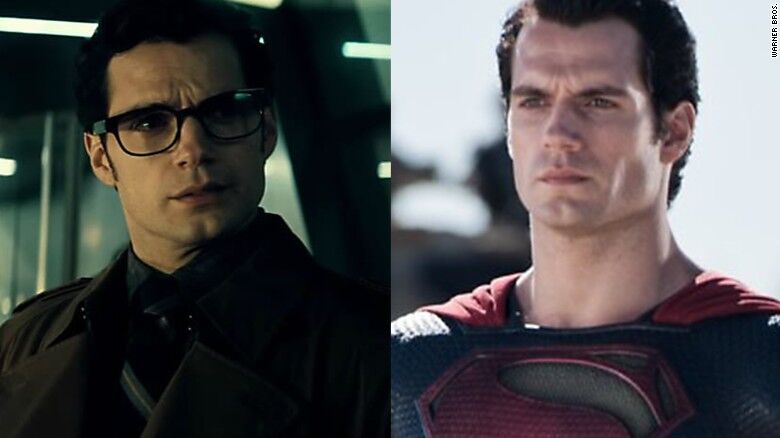For brands to collaborate, there has to be something that both brands need.
In B2B marketing, brands that open a conversation with ‘this is what we do’ help show any potential partners if there’s more to be said.
If we want a conversation to turn into a successful relationship, we need to be quite specific about ‘this is who we are.’ And the personal brand of the key people behind the business is one of the most reliable ways of knowing what a brand really stands for.
Batman and Bruce Wayne. Superman and Clark Kent. Iron Man and Tony Stark.
Business brand and personal brand.
Whichever era of comic book heroes you belong to, you’ll spot a pattern.
Every one of these heroes has two sides to them, sides they keep separate for good reason. And you, the hero of your own business story, might often find yourself in a similar predicament.
By similar predicament we don’t mean that you don a cape on a Thursday night and go around fighting crime syndicates. We mean you inhabit a world where your personal brand (you do have one – everyone does) and your business brand are not the same thing, and this can cause occasional conflict.
The relationship between personal brand and business brand isn’t simple. There are plenty of possible permutations.
Here is a handful:
- When your personal brand is bigger than your business brand.
- When your personal brand is one of several personal brands that come together to make up your business brand.
- When your personal brand and your business brand are at odds with one another.
- When your personal brand is irrelevant to the business brand.
- When your personal brand can help your business brand but isn’t doing so yet.
As you can see, these are a few of an almost limitless number of possibilities where personal brands and business brands can, should, or shouldn’t work together.
Let’s dive into each of these and very briefly examine what they would entail for you, the hero.
Your personal brand is bigger than your business brand
You are known by name and your business name isn’t or you are known by name and your personal brand equity is bigger than that of your business or businesses.
It’s easy to spot one of these.
Take Elon Musk.
In a discussion about why he hasn’t yet been to space while his billionaire competitors have, one possibility that was proposed is a simple matter of risk.
Amazon is a more powerful brand than Jeff Bezos is.
But I doubt that a conversation about insuring the risk of Musk in a rocket went the same way. If he doesn’t make it back, it would be a disaster for SpaceX, but also for Tesla and Neuralink and the Boring Company and so on.

The biggest headache is posterity – the notion of business continuity.
Knowing when you’re leaving helps.
Many predicted the decline of Apple following the departure of Jobs, whose personal brand was responsible for propping up Apple when the company’s fortunes were waning.
Bill Gates left Microsoft in excellent shape, having had a solid exit plan in place.
But what would the Jordan brand do without Michael Jordan? Can it rely on heritage and nostalgia forever?
We’re talking about industry giants here, but this issue exists on much smaller scales. If you’re the one people call and ask for by name, even though you’ve gone through the process of naming your company and having it branded, then it is very likely that you’re the Elon Musk and not the Jeff Bezos of your business.
Does it matter? Do you want your company to survive you?
If so, you have some continuity planning to take care of, starting with a brand strategy that causes your own name’s equity to converge with that of your business.
This is tougher than most think. It involves taking a rather disembodied view of oneself, objectively analysing one’s personal contribution to the business: an almost impossible endeavour when one is the subject of this exercise. Work with external brand consultants and be prepared for a rough ride that will, however, serve you in good stead down the road.
Several personal brands that come together to make up your business brand
There are countless examples of this rather complex situation.
One we come across often involves teams that deliver professional services.
Law firms, dental clinics, political parties, and architecture firms, for instance, usually start off as a meeting of minds between individual practitioners who already have an established personal reputation. Each partner retains their stature – they have gained a reputation for excellence in their field (with the exception of political parties) and the firm is best served if that reputation is further fortified.
But how does the collective build an identity for itself when it appears to be made up of a number of strong personal brands?
Maybe all the partners have a reputation for integrity (with the exception of political parties) but they do have individual characteristics that make them stand out amongst their peers.
A brand strategy is essential.
It takes humility to perform an honest and introspective analysis of the individual motivations – the personal brand purposes – and the way these can be subservient to, and essential building blocks of, the collective brand. Even amongst the most disparate and feisty personalities within a firm, there exists a sliver of overlapping purpose.
Amplified, this can lead to greatness. Ignored, the firm lasts for one generation and then implodes.
Once again, planning for continuity needs to be active and actively aware of the relationship between personal brand and business brand.
Your personal brand and your business brand are at odds with one another
This is an easy one to picture and a devilishly hard one to keep on track.
These are those businesses that pretend to stand for something when their founder stands for something else. Imagine an environmentalist who invests in oil because they need the money their investment will return as the capital it takes to build a solar farm.
Now imagine someone with a conscience who is working for an organisation that has a horrendous approach to social responsibility.
This is even easier to picture.
There are so many large employers out there that pay lip service to their social obligations while doing precious little to fulfil them. The employees who are at odds with this know the dissonance between their own brand fundamentals and the ones of the company that pays their salaries.
In time, this relationship will break. In time, when the relationship finally breaks, that individual is free to find employment within an organisation where personal and business brand values overlap.
This category is unfortunately larger than it should be.

Your personal brand is irrelevant to your business brand
This might sound like something of a unicorn but it is probably the most common occurrence in terms of sheer numbers.
Most companies that employ large armies of people to carry out a job that is relatively repetitive have to contend with this situation every day. From fast-food companies to cab services, and from manufacturing to low-skilled services, a large number of individuals must conform their identity to that of the brand that they represent while at work.
Remember that everyone has a personal brand – it isn’t ceremoniously conferred once a magical combination of net worth and social influence coincide.
Everyone who works in the same kitchen and flips the same burgers might be wearing the same uniform but they’ve taken themselves to work – their life experience, their ambitions, their personal value system and their beliefs with them.
Successful brands have learned that onboarding the team requires a careful and intelligible way of transmitting the brand’s values in a way that works with, not against, the personal brand of the individual.
“While at work, we depend on the consistency of our burger patty. When you’re home and cooking for yourself and your family, feel free to experiment.”
It is asking us to leave a part of our expression behind when we wear our uniform, but it’s okay if we are shown that consistency is an essential part of our employer’s success.
Your personal brand can help your business brand but isn’t doing so yet
This one is a bit of a pickle.
It is typical of the introverted entrepreneur who runs a successful brand that’s extroverted.
It is common with business founders who are media shy or who don’t have charisma.
It is the curse of the business partner who is too busy to bother with LinkedIn, the bane of the CEO who doesn’t have time for her marketing team’s pleas for a better profile photo, the clever inventor who claims that the brand works better without them.
In many cases, the business brand would benefit tremendously from the human side of the person who is concealing their worth behind what they hope is a rather impersonal business facade.
It’s a tough one because, sometimes, a personal brand can’t actually help the brand.
The United States national brand would have been better served had they prevented President Trump from using his official Twitter account as a release valve for his brain when it was bursting with stupid.
Steve Jobs, on the other hand, was famously conspicuous for his absence from social media.

Of course, he did have a strong personal brand that was curated via keynote appearances – social media channels are not the only expression of personal brand – but his relative invisibility remains a subject of great debate when it comes to the impact it could have had on the brand. Keeping Steve Ballmer away from a visible link with Microsoft, on the other hand, could have been a wise move.
In general, however, there exist ways of using your personal brand for the good of your business brand and if you’re not doing so already, it is worth putting this pursuit high up in your list of priorities.
It isn’t easy but help is available.
And there is no one-size-fits-all approach.
The ideal intersection between personal brand and business brand needs to be analysed and assessed and the implementation of this intersection needs to follow a rather deliberate strategy.
Your personal brand and your business brand, hand in hand
In most cases (unless you’re a rogue president), your personal brand will contribute to your business brand.
Keep in mind that we are a species that connects to other people first. We are naturally gregarious and have, for millennia, understood that we are better when we form interpersonal relationships.
We start by examining our business brand. What does it stand for? Why does it matter to the community that our brand exists? What are the fundamental principles that our brand abides by? What is the core personality of the brand?
Equipped with good answers to these questions, we can see how our personal brand can complement the business brand.
No matter who you are, the rules of brand apply.
Your personal brand should not do anything to violate any of the business brand’s principles. With this in mind, plot out a strategy that takes the strengths of your personal brand and uses them to fill in gaps that your business brand may have.
“But my brand has no gaps”, you might be thinking.
Watertight as it is, a brand can always benefit from a personality that is adjacent to it and that opens it up to new audiences, for instance. It could always do with a human who speaks from a position of authority about its product, service, or even the industry you form part of.
Every brand could do with an optimistic and enthusiastic voice that rallies its own team and reminds everyone on board why it’s so great to work for the brand.
And it tells potential recruits why they should make the move.
In B2B marketing terms, authority and company culture are key. Anyone willing to collaborate with your brand will be more willing to do so if the personal brand or brands behind the company know what they’re doing and behave in a way that’s aligned with the company’s values.
Remember that you always have the option of borrowing a page from the superhero playbook. A carefully curated business persona that is decoupled from your private life is entirely possible. As long as both stand for the same fundamental principles, the expression and tone of voice can be deliberately kept separate.
The business end of Superman’s fist is made of the same five fingers that wrote articles for The Daily Planet, and both personae fought the good fight.

If you’re considering the importance of your personal brand in terms of its synergies with your business brand, here’s a cheatsheet to get you started:
- Understanding your business brand first is key. If you don’t have a carefully articulated brand position, work on that first.
- Understanding your personal brand is the next step. Work with someone objective and have your personal brand carefully codified.
- Lay out a brand strategy that is designed to use your personal brand to give your business brand a leg-up.
- Your strategy should be a long-term and far-reaching one. This is a long game and is built on consistency and staying power. Just like you can spot a gimmick from a mile away, so can your audience.
- Use all channels at your disposal and use them wisely. Your Instagram, Facebook, TikTok, and especially your LinkedIn presence needs to be curated, with content that is different for each medium and appropriate to that medium
- Make your personal brand move when you fully intend to be consistent. Extended periods of silence do not portray a keen and active desire to be a participant in the wider conversation.
- Be truthful, be true to yourself, and be true to your business brand. You’re better off silent than having to retract a position you don’t really stand behind.
- Prepare for reactions to what you have to say. This is a conversation – not a broadcast.




